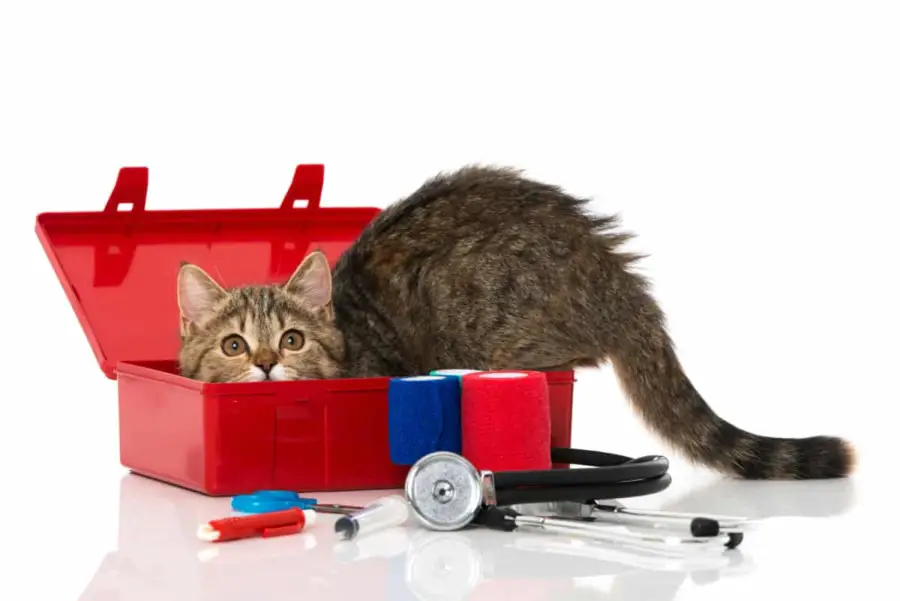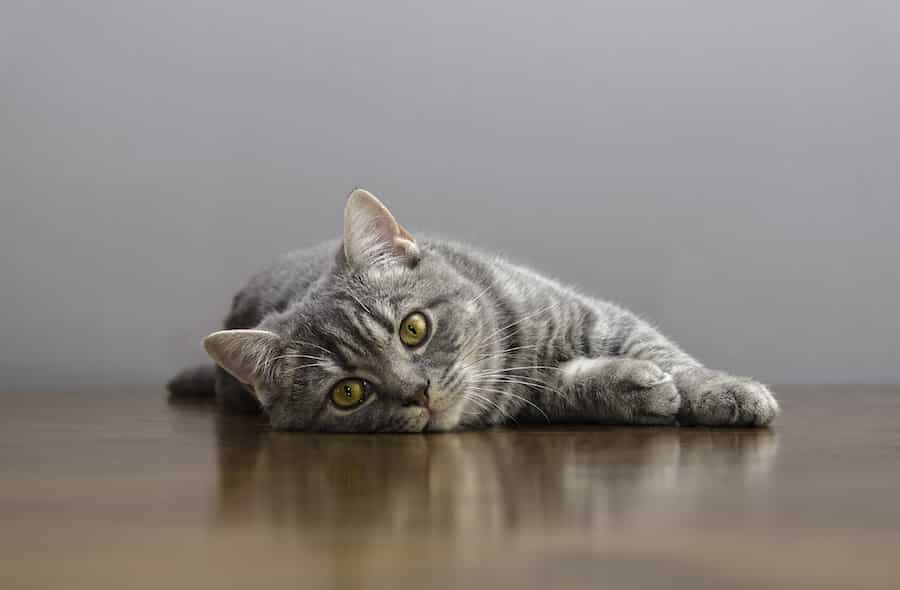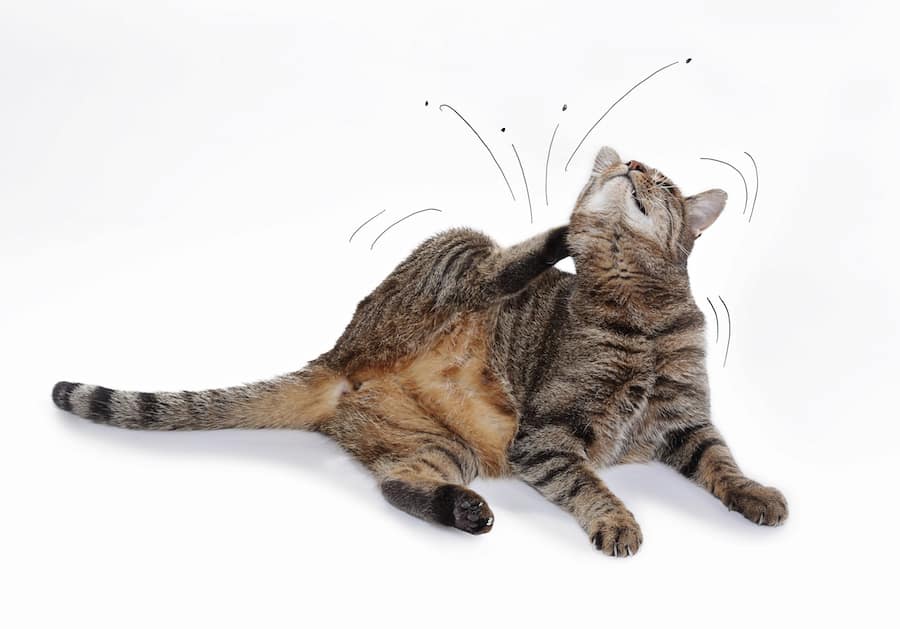Note: The following article and items are NOT a substitute for veterinary care. This article is meant to help you manage your cat’s situation until you can seek emergency medical treatment.
Summertime is the perfect time to discuss how you can be prepared to handle medical emergencies with your cat – particularly if you cat goes outdoors.
It’s important to be able to recognize when your cat needs medical attention, and The American Red Cross is a great resource to get educated. We consulted their Pet First Aid Tips for Owners to present five conditions and how to tell if your cat is being affected.
5 MEDICAL CONDITIONS THAT COULD SIGNAL A CAT EMERGENCY

Dehydration in your cat
If you fear your cat may be dehydrated, you can check by pulling up the skin between the shoulder blades. If it bounces right back, he is okay. If the skin remains pinched, this is a sign of dehydration.
Cat was poisoned
Cats are notoriously curious, and the list of items that are poisonous to them is lengthy. Signs your cat has gotten into something potentially fatal include external or internal bleeding, dilated pupils, drooling or foaming at the mouth, seizures and other behaviors you can determine to be abnormal.
Seizures in cats
Signs of seizure in cats, according to petMD, include falling over, stiffness of the body, abnormal jaw movement, excessive salivation, urinating or defecating, vocalizations and “swimming” with their legs. American Red Cross says that if your cat has a seizure, you should get her to a safe place, but do not restrain her. She may be confused and not recognize you, so be careful not to put your hands by her mouth.
Heatstroke in cats
Hot summer days are hard on everyone. Signs that your cat is suffering from heatstroke include collapsing, abnormally hot body temperature (104 degrees F or above), bloody diarrhea or vomiting, instability, panting, excessive salivation, increased heart rate and intensely red mucous membranes (check the gums, a pinkish color is normal).
Animal bites and other injuries
If your cat has been bitten by another animal or has been otherwise injured and is bleeding, you can apply pressure with gauze to help stop the bleeding until your vet can take over. Even minor injuries should be seen by a vet to ensure they don’t become infected and that no internal wounds have occurred.
CAT FIRST AID ITEMS TO KEEP ON HAND

Medical emergencies can happen at any time, and there are multiple reasons why your cat may not be able to receive immediate medical attention. Maybe you have a bit of a drive to the vet, or something happens outside of your regular vet’s hours and you have to find an emergency vet. In these instances, you will want to be prepared to do what you can to help your cat until you are able to get veterinary assistance.
If you haven’t already done so, putting together a cat first aid kit is a great idea. In an emergency, it can help you feel like you have some control in a situation where it is easy to feel helpless. The Humane Society has an excellent list of items to include in a pet first aid kit. We’ll cover some of the most important ones below.
- Your regular vet’s phone number, as well as the number to an emergency vet
- Self-cling bandage (this will not stick to your cat’s fur)
- Gauze pads
- Round-tip scissors to cut bandage and gauze
- Tweezers
- Antiseptic wipes or spray
- Water (helps with rehydration or cleaning up the fur if necessary and safe to do so)
- Latex free gloves
- Baby rectal thermometer and petroleum jelly (be sure to sterilize after use or use one with covers)
- Sterile saline solution
- A pillowcase or blanket to confine your cat if necessary
- Tick removal tool
- Nail clippers
- Antibiotic ointment or Vetericyn Wound and Skincare Hydrogel
- Eyedropper
- Towels
These items will give you a great start for a cat first aid kit. Additional items you may want to include are your cat’s paperwork (vaccinations, medical history, etc.) and any medications they may be on with information on dosage and administration. Make sure yourself and at least one other person know where to find the first aid kit, and please remember that while these items enable you to help your cat until veterinary assistance is available, you should not consider them to be a viable replacement for a vet visit. Always seek the professional medical attention your cat requires.
This blog contains affiliate links. For more information about third-party advertising on this site, please click here.
